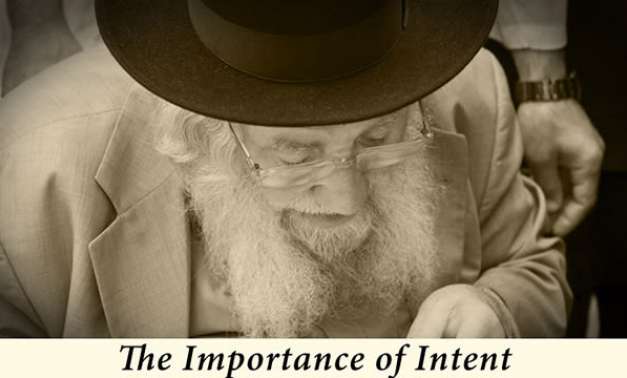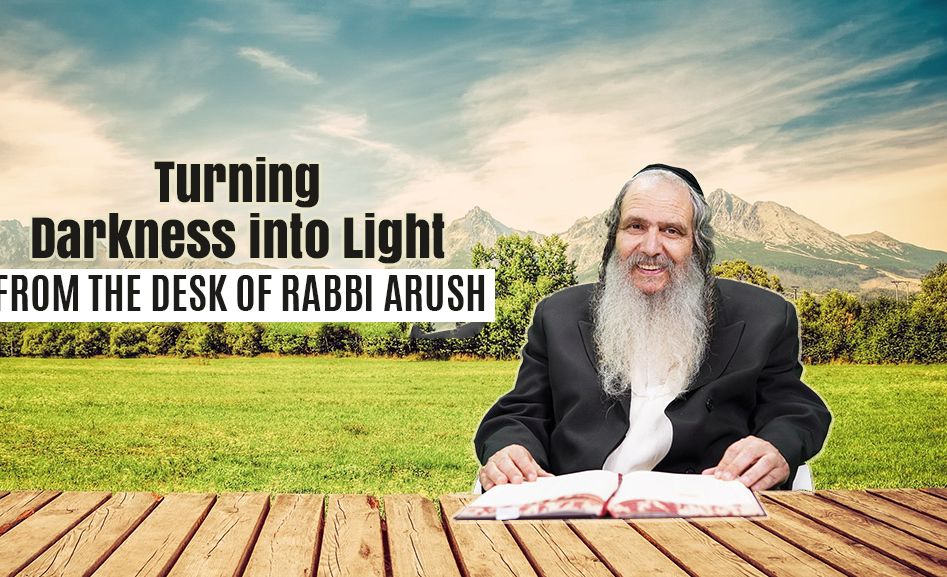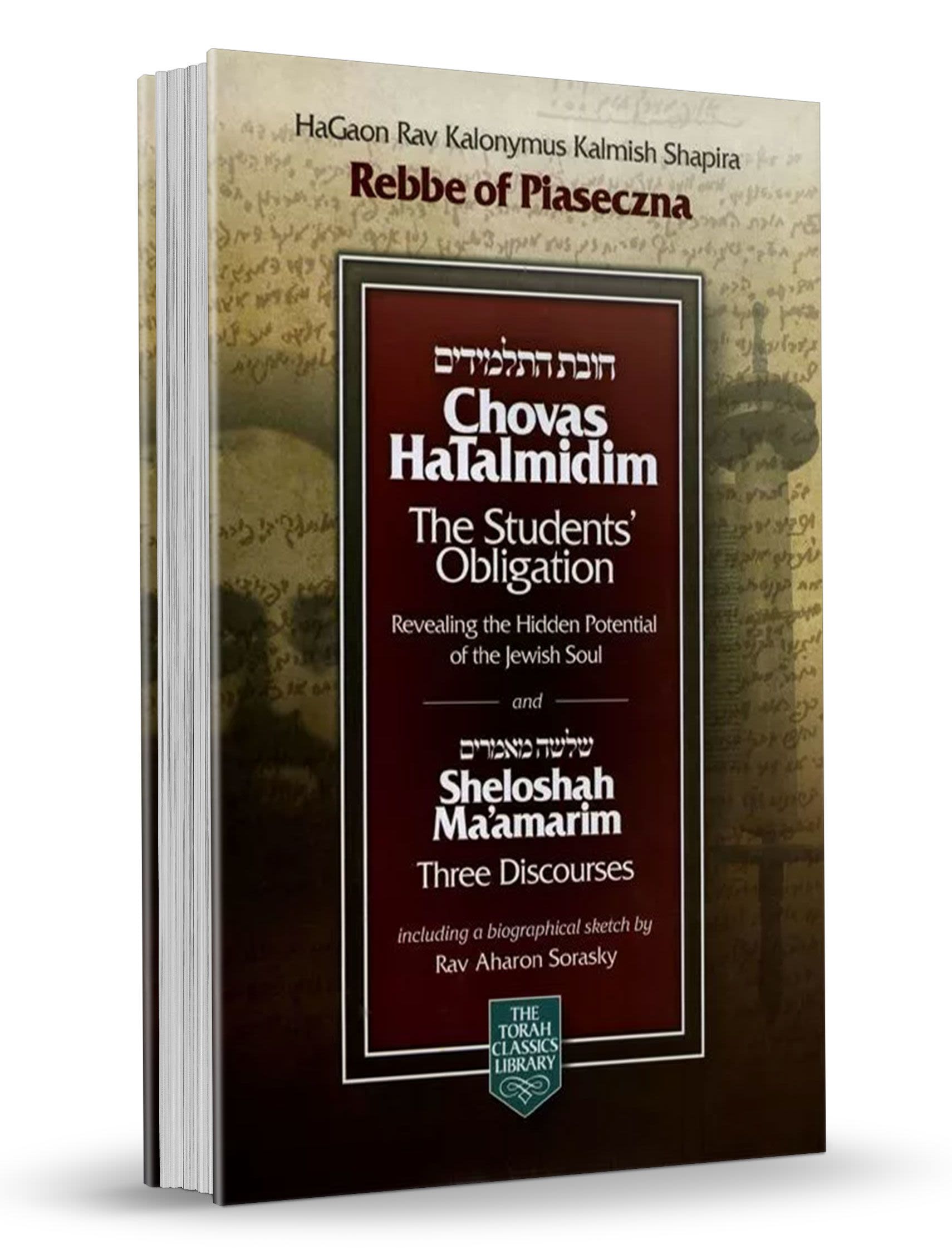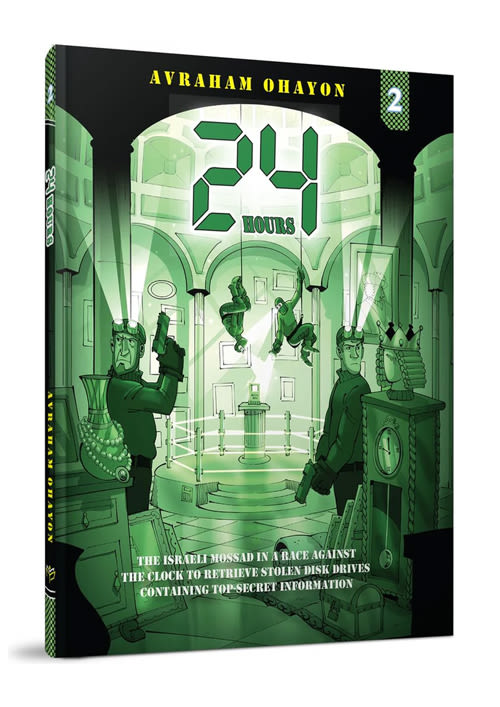
Strangled with Stringency
A person is at liberty to add more intent, joy and desire in fulfilling a mitzva; this is of course highly commendable. But, he may not add or detract from the mitzva itself...

We have no understanding as to why Hashem wants us to observe the mitzvot the way He commands us to. We don’t understand what happens when we wear tzitzit, and why exactly we must wear four sets of fringes on each corner of a four-cornered garment. So why would you want to add a fifth set of fringes? Do you think that Hashem wants you to be holier than others, or to do more than you’re told? Hashem wants your heart and your complete emuna; He doesn’t want you to add or subtract from the mitzvot. A person is at liberty to add more intent, joy and desire in fulfilling a mitzva; this is of course highly commendable. But, he may not add or detract from the mitzva itself.
When a person is truly on a lofty level of piety, which includes impeccable emuna and personal holiness, he may opt to follow the stringent opinions of Halacha, Jewish law. But even the pious individual follows only the stringencies that are anchored in Halacha – he doesn’t conjure them in his imagination. Yet, if a person who isn’t truly pious tries to be overly stringent, then the stringencies will be ultimately detrimental to his personal and spiritual growth rather than bringing him closer to Hashem.
A person is vulnerable to mistakes as soon as he lacks clarity as to what Hashem wants from him. His confusion stems from the klipa – the negative spiritual force – known as Amalek. The numerical value of Amalek in Hebrew is 240, exactly the same as the numerical value for the word safek, which means  “doubt”.
“doubt”.
An old Arab expression says that if you put too much on a camel’s back, in the end, you break his back and he can’t carry a thing. The same goes for stringencies; one who takes too much stringency upon himself ends up doing nothing. First, he gets tired of the stringencies and becomes lax in performing them. Then, he becomes lax in performing the mitzva itself. I have personally witnessed this phenomenon time and time again; young baalei teshuva – newly observant Jews – obligated themselves with stringencies that they simply could not maintain over time. Their Judaism became a heavy burden, to the extent that they left observant Judaism altogether. That’s certainly not what Hashem wants. Hashem wants us to fulfill His commands with joy and with simple emuna, without adding or detracting anything.
We learn the above concept in the mitzva of giving the half shekel once a year. The Torah says, “The rich man shall not add and the poor man shall not subtract from [the giving of the] half shekel” (Exodus 30:15). This mitzva does not just come to teach about this particular instance – it teaches about the entire Torah. Theoretically, the rich man can ask, “Why not let me give more? I can afford it.” On the other hand, the poor man might complain, “Why must I be required to give the same sum that the rich people give?” Hashem doesn’t want any questions like this, even if they seem to be logical, for human logic is not Divine wisdom. On the contrary, Hashem wants us to perform the mitzvot with complete emuna – with simplicity and innocence of heart.
Thank goodness, there are many qualified morei hora’a, rabbis with certified knowledge of religious law, whom a person may consult. As soon as a person follows the Code of Jewish Law, he or she is fulfilling the will of Hashem. There is no need to add stringencies. And, as we mentioned previously, stringencies usually detract rather than add to a person’s service of Hashem. A person must not weigh himself down under a load of stringencies until he cracks.
King Solomon therefore says, “Don’t be overly pious…and don’t be overly criminal” (Ecclesiastes 7:16-17). In other words, if a person adopts stringencies in a manner that’s above his true level of piety, he’ll end up doing criminal acts that are way below his spiritual level. We must therefore observe and perform the mitzvot exactly as the Code of Jewish Law and our leading rabbinical authorities of the generation instruct us to, with simple emuna and without second-guessing.












Tell us what you think!
Thank you for your comment!
It will be published after approval by the Editor.